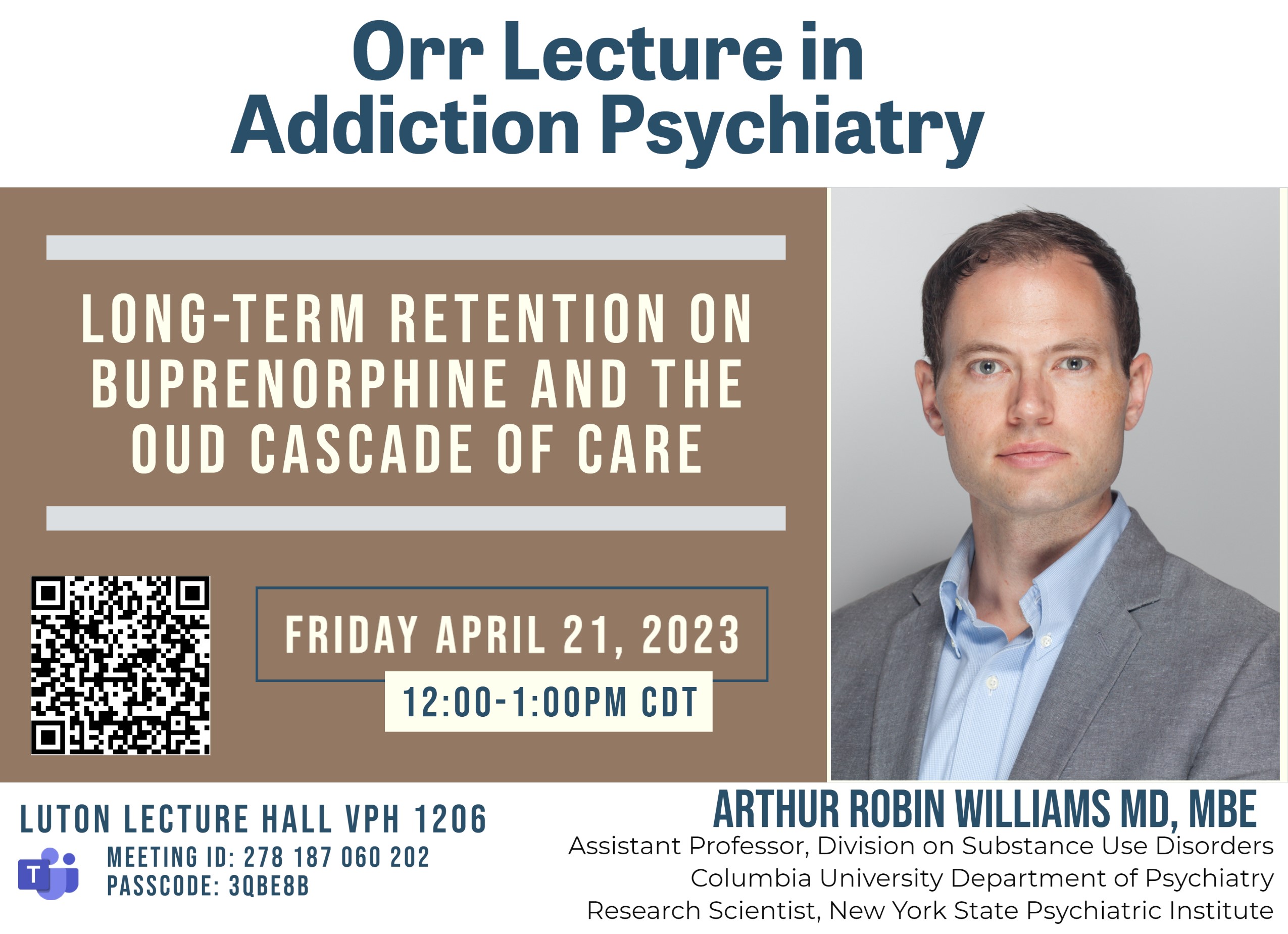
"Long-term retention on buprenorphine and the OUD Cascade of Care"
Arthur Robin Williams MD, MBE
Assistant Professor, Division on Substance Use Disorders
Columbia University Department of Psychiatry
Research Scientist, New York State Psychiatric Institute
Objectives
The activity is designed to help the learner
- Describe the evidence base for clinical benefits from long-term retention on buprenorphine
- Identify quality measures that are applicable to the treatment of OUD
- List key stages of the OUD Cascade of Care
- Describe the relationship between retention in OBOT treatment settings and patterns of opioid use over time

Summary
Dramatic increases in overdose deaths in the US have created an urgent need to improve access to and retention in evidence-based care for opioid use disorder (OUD) with medication (MOUD), under the OUD Cascade of Care framework. The Cascade public health framework emphasizes key stages or transitions during the treatment of individuals with OUD to reduce risks of adverse outcomes: critically, successful MOUD initiation and long-term retention. However, it has thus far been agnostic towards concurrent opioid use. Patients with opioid use in care will likely experience attenuated risk reductions following treatment discontinuation. My goal is to establish an empirical evidence base to inform clinical evaluations of patient risks (e.g. adverse outcomes including overdose) at the individual level to inform care pathways. Against the scale and gravity of the evolving opioid epidemic, it is vital that clinical and policy strategies are informed by careful consideration of rigorous analyses of empirical data with large, usual-care populations.
This talk is sponsored by the Orr Lecture Fund Department of Psychiatry and Behavioral Sciences. This educational activity received no commercial support.